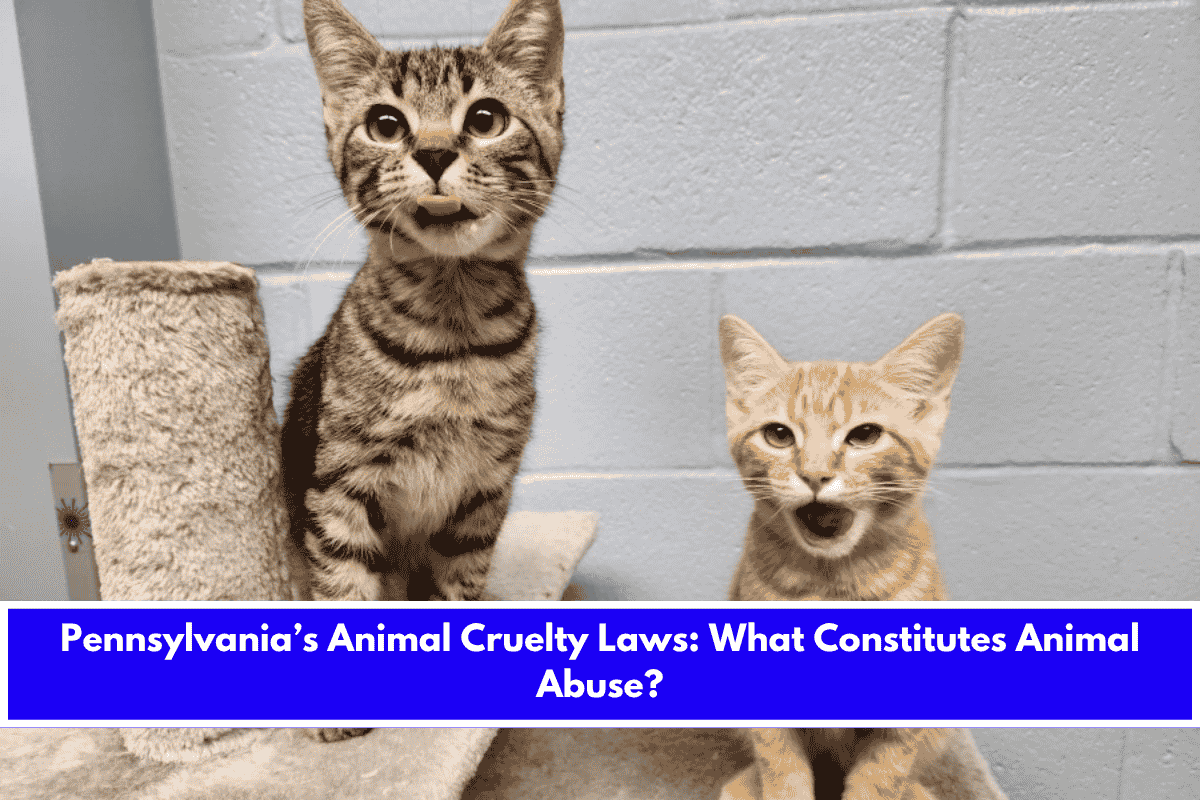Pennsylvania’s animal cruelty laws are comprehensive and designed to protect animals from a wide range of mistreatment. Under state law, what constitutes animal abuse includes both intentional acts of harm and neglectful behaviors.
What Is Considered Animal Abuse in Pennsylvania?
Animal abuse is defined as intentionally, knowingly, or recklessly mistreating, beating, torturing, abandoning, overloading, or otherwise abusing any animal. This includes not only physical violence but also acts that cause unnecessary suffering or endanger an animal’s well-being.
Animal neglect occurs when a person fails to provide for an animal’s basic needs, including:
- Necessary sustenance and potable water
- Clean and sanitary shelter that protects the animal from the weather and allows it to retain body heat
- Necessary veterinary care
Specific Offenses and Examples
- Tethering: Leaving a dog tethered and unattended for more than nine hours in a 24-hour period, or for more than 30 minutes in temperatures above 90°F or below 32°F, is considered cruelty unless the dog has adequate shelter and access to food and water.
- Transporting animals in a cruel manner
- Animal mutilation: Performing surgeries or procedures on animals without proper veterinary care or anesthesia (except as allowed by law)
- Animal fighting: Organizing, participating in, or attending animal fights is strictly prohibited and is a felony offense.
- Abandonment: Leaving an animal without proper care or supervision.
Legal Penalties
Pennsylvania law categorizes animal cruelty offenses based on severity:
- Summary Offense: For neglect or less severe cruelty, such as failing to provide food, water, or shelter. Penalties can include up to 90 days in jail and a $300 fine.
- Misdemeanor: If neglect or cruelty causes bodily injury or places an animal at imminent risk of serious bodily injury, it is a misdemeanor of the third degree, punishable by up to one year in jail and a $2,000 fine. Willfully and maliciously killing, maiming, or disfiguring a domestic animal is a misdemeanor of the second degree, punishable by up to two years in jail and a $5,000 fine.
- Felony: Aggravated cruelty—such as intentional torture, maiming, or killing of a dog or cat—is a felony of the third degree, punishable by up to seven years in prison and a $15,000 fine.
Enforcement
Animal cruelty investigations in Pennsylvania are conducted by local law enforcement, animal control officers, and humane society police officers. The Pennsylvania Society for the Prevention of Cruelty to Animals (PSPCA) also plays a key role in investigating and prosecuting these cases.
Summary Table
| Offense Type | Examples | Penalty (if convicted) |
|---|---|---|
| Summary Offense | Neglect, lack of food/water/shelter | Up to 90 days jail, $300 fine |
| Misdemeanor | Cruelty causing injury, tethering violations | Up to 2 years jail, $5,000 fine |
| Felony | Torture, maiming, killing (aggravated) | Up to 7 years prison, $15,000 fine |
Animal abuse in Pennsylvania encompasses a broad range of harmful or neglectful behaviors toward animals, from intentional acts of violence to failure to provide basic care.
The law imposes significant penalties, including jail time and fines, to deter and punish cruelty and neglect. If you suspect animal abuse or neglect, it is important to report it to local authorities or the PSPCA.
Sources:
- https://www.animallaw.info/statute/pa-cruelty-consolidated-cruelty-statutes
- https://www.eriehumanesociety.org/cruelty/what-is-animal-cruelty
- https://www.afashelter.org/animal-abuse-neglect/
- https://www.pspca.org/crueltylaws











Leave a Reply